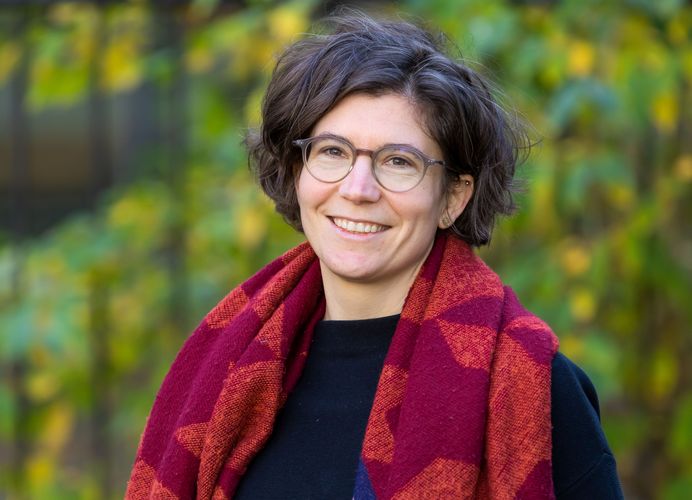Hallo Daniela and welcome to GESI! What can you tell us about your academic background?
My background is in social sciences, which means concretely, sociology and political sciences but I also have a minor in Slavic languages. During my master I adventured a little bit in physics, so I have some experience in working in natural sciences as well. During my doctoral research, I also dealt with historical sociology because my PhD looks at how energy historically emerges as a human made material and a condition of human life. In other words, I was interested in commodification of natural forces into the energy sources and how this process led societies which use this kind of technology in seeing nature differently.
How is your research related to Global Studies?
These uses of energy and development of new technologies are inseparable from the processes of globalization. The main texts of global history look at e.g. transcontinental voyages exploring the world or telegraphs connecting the world, all these technologies are based on certain uses of energy, and material foundations that make it possible for people to sail worldwide or to use steamships to reach certain places. They are the material foundations of this kind of globalization. On the other hand, you could also see technologies spreading through the world through globalization. Finally, it is important see that these processes do not happen naturally, there are certain people driving these processes. So, wherever these technologies arrive, there is someone adopting them, changing them, making use of them differently. So, I am also interested in how technology is picked up and then used for post-colonial projects, for example, to imagine another kind of economy.
Which publication would you recommend GESI students to read?
The publication that I would recommend is my latest article "Socialism is not just Built for a Hundred Years" published a couple of months ago in the journal of “Contemporary European history”. It looks at renewable energy policies that were already happening in the 1920s, so really early on, and how these energy engineers in the Soviet Union influenced global discussions about renewable energy. On the other hand, what is really interesting is to look at nature in a different way, not necessarily from a global studies perspective. Here, I would probably recommend a journal article “The idea of natural history”, because it breaks with our conventional conceptions of nature.
What will be in focus of your teaching and what are the courses you are offering or planning to offer?
I will offer courses on resources and globalization, both from a historical and a more contemporary perspective. So far, I have focused mainly on energy resources like electricity, but this might change over the next couple of years. Students can expect a little bit different focus than in a lot of other classes, because they have to read a little bit about the technology and science, and what kind of material is used and how it could, or couldn’t be handled. In a nutshell, it is a bit of more engagement with natural scientific knowledge than in other classes. Taking the object of study seriously, means that we have to know a little a bit of these technologies too.
Another aspect is to understand how the natural scientist and engineers for example, look at these technologies, but also how they can be seen them from the perspective of Global Studies and cultural studies. One course that I am now planning for the next semester is less about a specific resource, but more about the narrowing down of the political horizons and the conditions of limited resources, so it will look at politics since the 1970s and three different resources that become scarce over the time: money, energy, and the environment as a resource in general.
Global studies as a field of research poses number of specific challenges. How do you deal - in teaching and in research – with these challenges?
The interdisciplinary is personally for me an issue because I studied two disciplines and then looked into two other disciplines. One in the natural sciences and the other historical sociology. For me, the distinction between disciplines is a little bit arbitrary, is not rooted really in different objects of study. What I take from it is that if its about the formal structure of the universe, but if you want to get hired, find a job, you have to take into account that there are certain disciplines. Because that’s how the field really works. From the perspective of the object of research, I think it is good to be interdisciplinary. I wouldn’t link interdisciplinarity directly to globalization, which is an interdisciplinary field, like many others. Following the object of study is always an interdisciplinary enterprise.
It would be good for students to understand the history of their own disciplines, so they know that there is always also a social process, a political process on why certain discipline becomes constituted in a certain way. If you understand that, you can also go beyond that, or at least understand where some questions and debates are coming from.
As for eurocentrism when designing a course, I try to select texts that convey different experiences from different parts of the world. It seems to me that the categories we work with in the environmental or energy history, like energy or climate, are less criticized from the student’s side as Eurocentric. Sometimes my impression is that I have to motivate and explain why these concepts can also be challenged and provincialized, even the energy concept itself. It emerged in a certain point in time and certain society, and it is not universal. Resources and nature are also social and culturally formed, whereas we see that immediately when we talk about people.































































